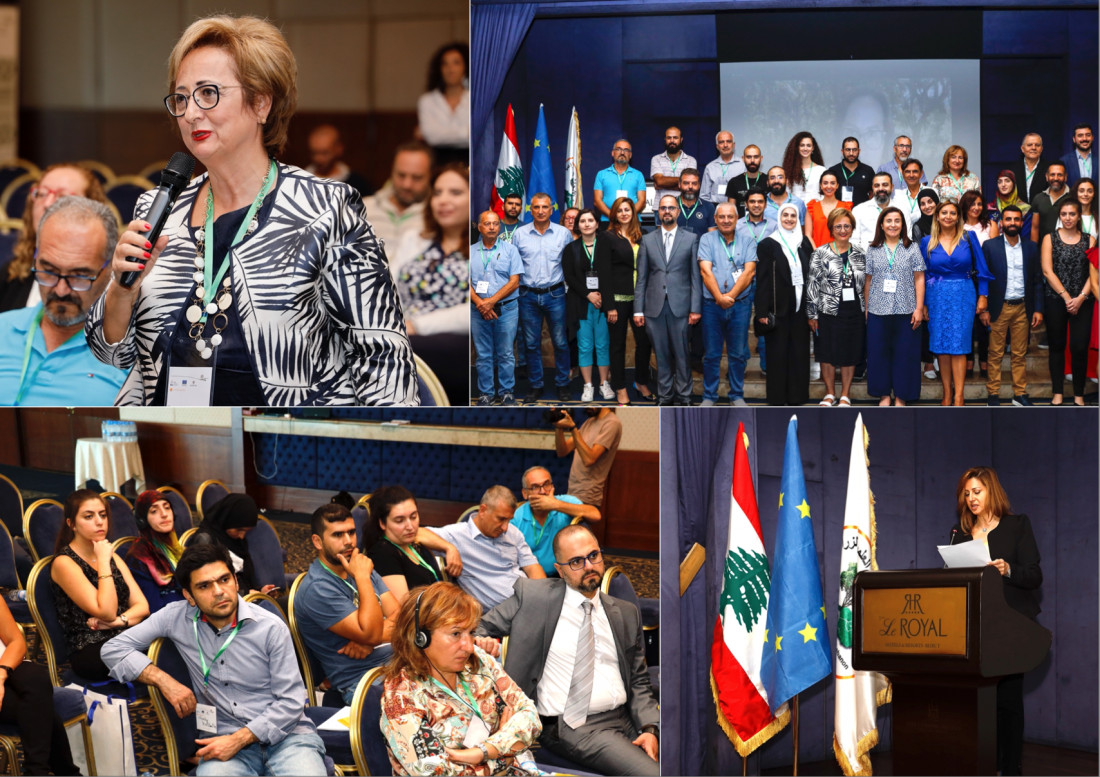LIVINGAGRO, latest Lebanese Business to Business event sets the basis for a long-term constructive cooperation among stakeholders of the grazed woodlands sector

With the aim of supporting farmers, entrepreneurs, local administrators, researchers, private companies, policy makers and stakeholders in Lebanon interested in agroforestry issues, especially in the field of grazed woodlands, on last October 5, 2022, the Lebanese Agricultural Research Institute (LARI) in collaboration with the Forest Agency for Land and Environment of Sardinia (FoReSTAS) held the Business-to-Business (B2B) event “Innovations for grazed woodlands” at the Hotel Le Royal Dbayeh in Beirut.
This one-day B2B event was aimed at supporting education, research and development, innovation, technology transfer as well as publishing and marketing of research results, offering a major opportunity for farmers, entrepreneurs, local administrators, researchers, private companies and policy makers interested in agroforestry issues, especially in the field of grazed woodlands in Lebanon, to set the framework for a long-term constructive cooperation among interested stakeholders. Let's "scroll" together through the comments and feedbacks collected from participants.
A first postivie feedback came from LIVINGAGRO project manager on behalf of LARI, agricultural engineer Dr. Peter Moubarak who referred to the importance of the event concerning achieved cooperation between stakeholders in the framewrok of LIVINGAGRO project aiming at designing and implementing state-of-the-art and ready-to-use innovations as well as technology transfer, publishing and marketing of research results, which include agroforestry-related issues, especially in the field of grazed woodlands. on the same issue, Dr. Moubarak reported about the ongoing collaboration with ministries and research centers, highlighting signature of several agreements with private universities, including the Saint Joseph University and the Lebanese University as part of the project, in addition to cooperation with the municipalities. Dr. Moubarak concluded by stressing on the fact that B2Bs are meant to contribute to the achievement of the main goal of the project, namely to create a network of stakeholders interested in the agroforestry sector to strengthen cooperation frameworks with third parties as well as improve production, inviting farmers and stakeholders to take part to the project Living Labs via the LIVINGAGRO ICT platform, where they can benefit from shared insights and experiences on different topics and innovations related to agroforestry that contribute to the sector development.
Moreover, several speakers of the event stressed and praised the importance of LIVINGAGRO's efforts to improve and enhance Mediterranean agroforestry. Among these, Agricultural engineer Georges Hassoun, a specialist in food processing, and Agricultural engineer Imad Hamza, a former professor at the American University, who emphasized the great significance of grazed woodlands and the need to implement practical research. Mr. Rony Francis, President of the Bchaaleh Agricultural Cooperative, expressed his appreciation and highlighted in particular the importance of addressing the topic of how and in which ways Lebanese farmers can benefit from the expertise of their European counterparts. Furthermore, agricultural engineer and specialist in agroforestry Sophie Mansour, stressed on the importance of collective work to develop and improve agriculture, protect forests and grazed woodlands in Lebanon underlining the importance of knowledge and research exchange between different countries also in a mutual sustainable development perspective.
An additional feedback on the conference came from Italian agricultural engineer Dr. Antonello Franca, who highlighted the importance of exchanging experiences and sharing insights among the participants to benefit from their mutual experiences in order to develop their agricultural work, especially since they come from different countries and contexts. "It is an opportunity for us to study how climate change is affecting grazed woodlands and to further develop our work to face the decrease of the agroforestry fields", he commented. Franca is a researcher at the National Research Council in Italy and a member at the Institute for Animal Production Systems in Mediterranean Environment (ISPAAM) in Sardinia and is involved in LIVINGAGRO project studying the impact of grazing on grazed woodlands in the Mediterranean region.
A third Business-To-Business brokerage event focusing on both olive multifunctional systems and grazed woodlands will be organized by the Mediterranean Agronomic Institute of Chania (MAICh) and held again in Beirut on November 15, 2022, don't miss this additional opportunity to network with other stakeholders and main actors of the Mediterranean agroforestry sector!









